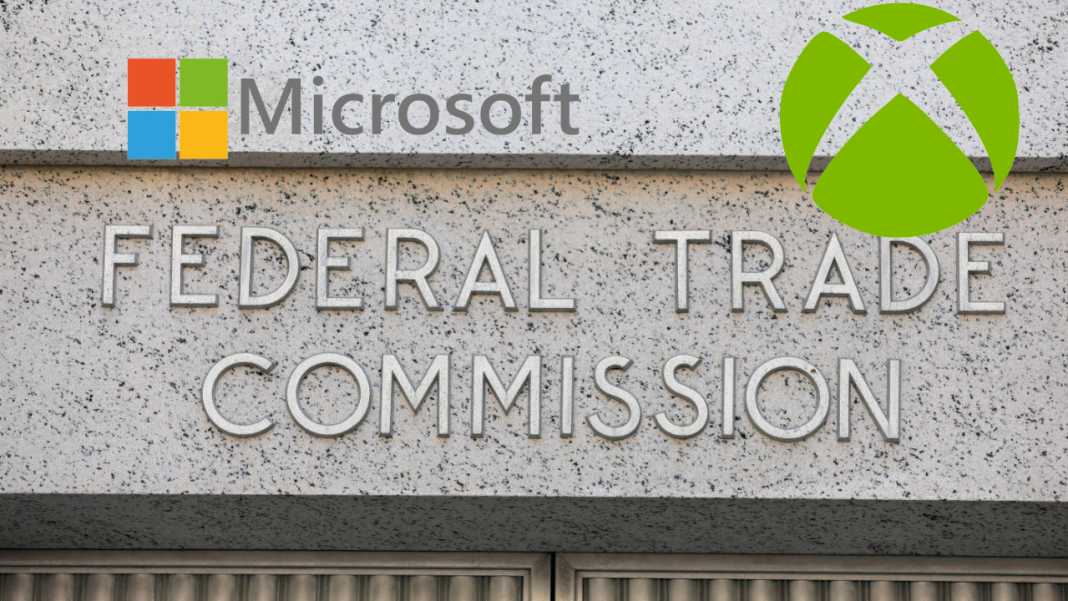FTC's Appeal Against Microsoft's Activision Blizzard Acquisition

Table of Contents
The FTC's Core Arguments Against the Acquisition
The FTC's primary concern centers around the potential for reduced competition and the anti-competitive effects of Microsoft's control over key gaming assets.
Concerns about Reduced Competition
The FTC argues that Microsoft's acquisition of Activision Blizzard would significantly reduce competition in the video game market, creating a monopoly and potentially harming consumers. This concern stems from several factors:
- Reduced availability of Activision Blizzard games on competing platforms: The FTC fears Microsoft could make popular Activision Blizzard titles, like Call of Duty, Xbox exclusives, limiting consumer choice and harming competitors like PlayStation and Nintendo.
- Potential for Microsoft to leverage its ownership of Activision Blizzard IPs: The FTC worries that Microsoft could use its newfound control over iconic franchises like Call of Duty, Warcraft, and Candy Crush to stifle innovation and prevent the emergence of competing titles.
- Stifling innovation by eliminating a significant competitor: The acquisition eliminates a major competitor in the gaming market, potentially reducing the drive for innovation and leading to higher prices and less choice for consumers. This reduces the competitive pressure on Microsoft to improve its own offerings.
The Importance of Call of Duty
The FTC specifically highlights the importance of Call of Duty in its argument. This incredibly popular franchise plays a crucial role in the competitive landscape.
- Call of Duty's massive player base and market share: Call of Duty boasts a massive and loyal player base, giving it significant market power.
- Potential for Microsoft to make Call of Duty exclusive to Xbox: Making Call of Duty an Xbox exclusive would significantly harm competitors, particularly Sony's PlayStation, which relies on the game's popularity to attract and retain customers.
- The potential for leveraging Call of Duty to gain market dominance across gaming platforms: The FTC argues that Microsoft could use its control over Call of Duty to leverage its position in the market, potentially pushing out competitors and ultimately harming consumers.
Microsoft's Defense and Proposed Remedies
Microsoft has countered the FTC's arguments, claiming the acquisition will benefit consumers and offering concessions to address antitrust concerns.
Microsoft's Arguments for the Acquisition
Microsoft argues that the acquisition will foster innovation, expand game development capabilities, and ultimately benefit gamers. Their key arguments include:
- Promises to keep Call of Duty available on PlayStation: Microsoft has repeatedly pledged to maintain Call of Duty's availability on PlayStation, aiming to mitigate the FTC's concerns about reduced competition.
- Plans for increased game development and innovation: Microsoft has highlighted its intention to invest in the development of new games and technologies, arguing that this will lead to a more vibrant and innovative gaming market.
- Arguments against the FTC's claims of monopolistic practices: Microsoft has argued that the market is far more competitive than the FTC suggests, and that the acquisition would not lead to monopolistic practices.
The Proposed Remedies and Their Efficacy
Microsoft has offered several remedies to appease the FTC, but their effectiveness remains questionable.
- Length and scope of proposed commitments to keep Call of Duty multiplatform: The duration and exact terms of any agreement to keep Call of Duty on PlayStation are key points of contention.
- Viability and enforceability of the proposed remedies: The FTC needs to be assured that any remedies proposed are realistically enforceable and will truly prevent anti-competitive behavior.
- Whether the remedies adequately address the FTC's concerns regarding competition: The core question remains whether the proposed remedies sufficiently address the FTC's concerns about reduced competition and potential harm to consumers.
The Broader Implications of the Appeal
The FTC's appeal carries significant implications beyond the immediate players involved.
Impact on the Gaming Industry
The outcome of this appeal will set a precedent for future mergers and acquisitions in the gaming industry.
- The precedent for future large-scale acquisitions in the tech industry: This case will influence how regulators approach future large-scale acquisitions in the tech sector, potentially leading to increased scrutiny and stricter regulations.
- The potential for increased regulatory oversight in the gaming sector: The appeal could trigger more stringent regulatory oversight of the gaming industry, potentially impacting future growth and consolidation.
- The impact on innovation and competition within the gaming market: The outcome will directly influence the competitive landscape of the gaming market, impacting innovation and the availability of games for consumers.
Implications for Consumers
The appeal directly affects gamers, who may experience altered market conditions.
- Potential increase in game prices if competition is reduced: Reduced competition could lead to higher game prices and less value for money.
- Reduced availability of games across platforms: The possibility of exclusive titles could limit consumer choice and accessibility to games.
- The impact on overall gaming experience for consumers: The decision will ultimately shape the overall gaming experience, influencing innovation, price, and the range of games available.
Conclusion
The FTC's appeal against Microsoft's Activision Blizzard acquisition is a landmark case with far-reaching consequences for the gaming industry and consumers worldwide. The central issue revolves around the potential for reduced competition and the impact of Microsoft’s control over key franchises like Call of Duty. The outcome will shape future mergers and acquisitions in the tech sector and determine whether the proposed remedies effectively address antitrust concerns. Staying informed about the progression of this legal battle is crucial for understanding the future landscape of the gaming industry. Keep an eye out for further updates on the FTC’s appeal against Microsoft’s acquisition of Activision Blizzard.

Featured Posts
-
 Crack The Code 5 Dos And Don Ts For Private Credit Jobs
Apr 29, 2025
Crack The Code 5 Dos And Don Ts For Private Credit Jobs
Apr 29, 2025 -
 Kaiserslautern Bayern Muenchen Eine Champions League Rueckblende
Apr 29, 2025
Kaiserslautern Bayern Muenchen Eine Champions League Rueckblende
Apr 29, 2025 -
 Sejarah Dan Warisan Porsche 356 Di Pabrik Zuffenhausen
Apr 29, 2025
Sejarah Dan Warisan Porsche 356 Di Pabrik Zuffenhausen
Apr 29, 2025 -
 Spain Vs Usa A Tale Of Two American Expats Experiences
Apr 29, 2025
Spain Vs Usa A Tale Of Two American Expats Experiences
Apr 29, 2025 -
 Beyond Quinoa Exploring The Latest Superfood Trend
Apr 29, 2025
Beyond Quinoa Exploring The Latest Superfood Trend
Apr 29, 2025
Latest Posts
-
 Wbc Final Eliminator Cissokho Meets Kavaliauskas
May 12, 2025
Wbc Final Eliminator Cissokho Meets Kavaliauskas
May 12, 2025 -
 The Future Of The Papacy Examining The Leading Contenders To Succeed Pope Francis
May 12, 2025
The Future Of The Papacy Examining The Leading Contenders To Succeed Pope Francis
May 12, 2025 -
 Cissokho And Kavaliauskas Clash In Crucial Wbc Eliminator Bout
May 12, 2025
Cissokho And Kavaliauskas Clash In Crucial Wbc Eliminator Bout
May 12, 2025 -
 Analyzing The Next Papal Election Potential Candidates And Their Platforms
May 12, 2025
Analyzing The Next Papal Election Potential Candidates And Their Platforms
May 12, 2025 -
 Possible Successors To Pope Francis Leading Cardinals And Their Prospects
May 12, 2025
Possible Successors To Pope Francis Leading Cardinals And Their Prospects
May 12, 2025
